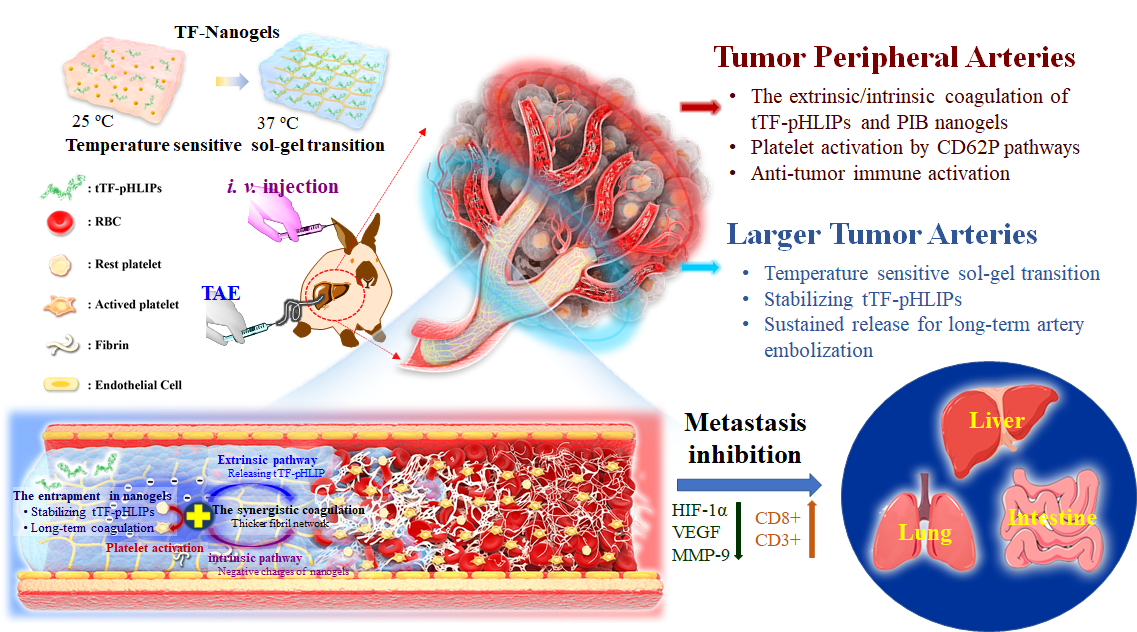(Correspondent Dingwen Shi) On December 28, 2021, Prof. Yanbing Zhao, Prof. Xiangliang Yang (College of Life Sciences & Technology and National Engineering Research Center for Nanomedicine) cooperated with prof. Chuansheng Zheng(Union Hospital, Tongji Medical College, Huazhong University of Science and Technology) published a research paper entitled "The synergistic blood-vessel-embolization of coagulation fusion protein with temperature sensitive nanogels in interventional therapies on hepatocellular carcinoma" in journal Chemical Engineering Journal
Tumor vessel infraction (TVI), which utilized coagulation factors to selectively infarct tumor blood vessels and efficiently kill tumor cells, has been studied in tumor therapy. Truncated tissue factor (tTF), modificated with a variety of tumor-targeting peptides were widely used in TVI therapy. However, these recombinant coagulation proteins had problems such as: short biological half-life, easy to cause systemic thrombotic adverse reactions and tumor metastasis et al, which limited their clinical application. Embolizing agents and drugs can be delivered to the tumor supply blood vessels through the Transcatheter arterial embolization (TAE), then blocked the blood supply, achieve the sustained release of antitumor drugs. Therefore, an ideal embolization agent should have properties for good fluidity, embolization, controlled drug release, and procoagulant.

In order to solve those problems, this study used a thermosensitive nanogel, which had a good fluidity and embolization properties, to load a fusion protein of truncated tissue factor and tumor-targeted low pH insertion peptide (tTF-pHLIP). The tTF-pHLIP was superselectively delivered to the tumor supply blood vessels and achieved a slow-controlled release by encapsulated in thermosensitive nanogels. This effectively improved the in vivo stability of the tTF-pHLIP fusion protein, avoided the infarction in non-target blood vessels, and cooperated with the endogenous coagulation mechanism of the thermosensitive nanogels to achieve long-term coagulation-gel composite vascular embolization, which significantly inhibited tumor growth and tumor recurrence and metastasis, showed a good clinical application potential, and provided a new solution to the problems of tumor recurrence and metastasis and low long-term survival rate faced in interventional therapy of liver cancer.
Ph.D candidate Dingwen Shi from the School of Life Sciences of Huazhong University of Science and Technology, and Ph.D. Hongsen Zhang from the Union Hospital are co-first authors. The tTF-pHLIP protein was a generous gift from Suping Li and Guangjun Nie (National Center for Nanoscience and Technology). This work was supported by National Basic Research Program of China (2020YFA0710700, 2018YFA0208900) , National Natural Science Foundation of China (82172758, 81873919) and the Fundamental Research Funds for the Central Universities,HUST:2020JYCXJJ027.
The paper link: https://doi.org/10.1016/j.cej.2021.134357